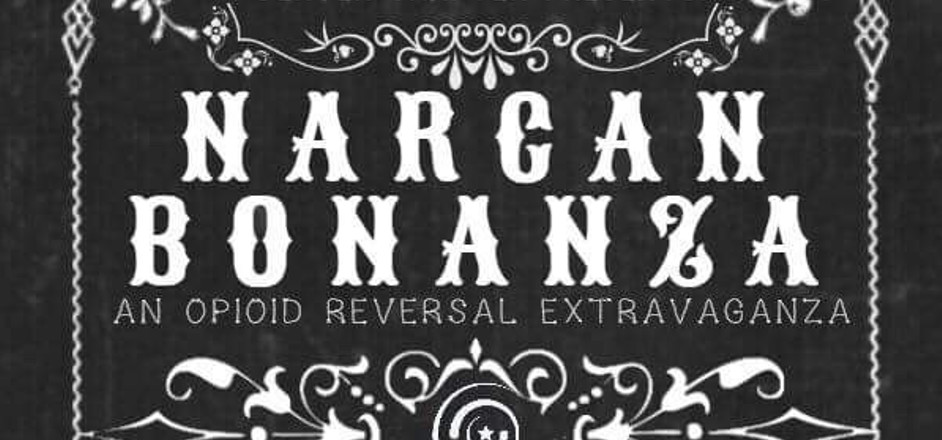There are lots of events teaching people how to use narcan.
But we've never seen one with a name like this:
Narcan Bonanza: An Opioid Reversal Extravaganza.
Uh … bonanza? It almost sounds … fun.
"Overdoses are pretty heavy subject matter," says Joe Martinez, one of the organizers of the event.
Seems they thought they'd give it a semi-fun name.
The Narcan Bonanza is happening Thursday at 6:30 p.m. at Thrive workplace in downtown Denver, sponsored by Young People in Recovery, a nonprofit.
Narcan is the opioid antidote. Now, the Narcan Bonanza will not be preceded, 45 minutes before, by the Heroin Ho-Down or the Fentanyl Fiesta. It is not a contest to see who can nod off on China White or Mexican Brown and be revived the most times in an hour. There probably won't even be pinatas filled with narcan.
There will be pizza and pop, and a giveaway. The first 60 people get narcan.
"We'll have panelists, some really inspirational people in harm reduction," said Sara Wittner, an event organizer and recovering heroin and coke addict. Speakers include harm reduction badass Lisa Raville, who is head of a Denver clean syringe access program, and Leslie Herod, a state legislator pushing for a supervised injection site. There will be a training on how to use narcan — also called naloxone — which binds to the opioid receptors and prevents the opioid itself from taking hold.
Opioids were involved in 42,000 overdose deaths in 2016. It's not fun. For Joe Martinez, 32, there were years when he was suckling at the tip of a dripping needle; sleeping in doorways; in and out of jail; plus the pain, the un-killable regret, of losing his brother, Gabe, at 25, when he nodded off in a bathroom on horse and never woke up. Gabe might have been resurrected if narcan had been nearby.
Heroin is a game of luck, and some cops and drug counselors don't like handing out narcan, because they think it gives addicts a get-out-of-death-free card, which makes them more likely to roll the dice again. In fact, some officials in Ohio and Connecticut have argued that their first responders shouldn't waste their time and money reversing overdoses. “I'm not the one that decides if people live or die," Richard K. Jones, sheriff of Butler County, Ohio, told the Washington Post. "They decide that when they stick that needle in their arm.”
"I don't want to do anything that makes it easier for people to do drugs," said a paramedic friend of mine who thinks giving out narcan promotes bad behavior. "Drugs are bad."
Most people don't think like that. Use of narcan is way up; 26,000 opioid overdoses were reversed by regular people between 1996 and 2014; 92 percent of wakeups are done by users themselves or their kin, a government report said. Veterans Affairs even hands it out.
"To me, it's crazy that anyone who's using opiates would go without it," Martinez says.
It should be a part of medicine. Allergic to nuts? Carry an epipen. Diabetic? Bring a snack. Struggling with addiction? Keep narcan handy.
Then you could be like paramedic Nick Cage in Bringing Out the Dead and pretend narcan has the power to raise the dead.
Because it kind of does.




Leave a Reply